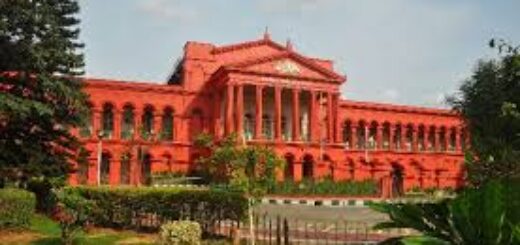CJI Chandrachud’s ruling does not claim that the Krishna Iyer Doctrine harmed the Constitution; however, Justices Nagarathna and Dhulia do not support it.

In her partially agreeing opinion in the Property Owners Association v. State of Maharashtra case, Justice BV Nagarathna stated that the remarks made in the majority judgment by CJI DY Chandrachud regarding Justice Krishna Iyer are unnecessary and unjust. She noted, “The Chief Justice also states that the role of this Court is not to establish economic policy, but to support the framers’ intent in creating a foundation for an ‘economic democracy.’ The Krishna Iyer doctrine undermines the broad and adaptable nature of the Constitution.” Notably, the phrase “The Krishna Iyer doctrine undermines the broad and adaptable nature of the Constitution” does not appear in CJI’s judgment.
The Chief Justice of India made important comments in today’s ruling. He stated that the term “material resources of the community” in Article 39(b) of the Constitution does not refer to all privately owned property that could be taken by the State for the common good. The Chief Justice noted, “The Constitution was designed broadly to let future governments try different approaches to economic governance that align with their responsibilities to the voters. Dr. Ambedkar believed that if the Constitution specified a certain economic and social system, it would restrict people’s freedom to choose their own social structure. He often said that economic democracy is not limited to one type of economic system, like socialism or capitalism, but is about the goal of a ‘welfare state’. Therefore, the role of this Court is not to define economic policy, but to support the framers’ vision of establishing an ‘economic democracy’.”
The Bench was reviewing a set of pleas related to Article 31-C of the Constitution. Senior Advocates Zal Andhyarujina and Sameer Parekh represented the appellants, while Senior Advocate Uttara Babbar represented one of the intervenors. The respondents were represented by Attorney General R. Venkatramani, Solicitor General Tushar Mehta, and Senior Advocates Rakesh Dwivedi and Gopal Sankarnarayanan. The Chief Justice made the following conclusions in the judgment:
1. Article 31C, as upheld in Kesavananda Bharati v Union of India, is still valid;
2. The majority ruling in Ranganatha Reddy distanced itself from Justice Krishna Iyer’s minority views on Article 39(b). Therefore, the Sanjeev Coke decision was incorrect in relying on the minority opinion;
3. The brief statement in Mafatlal that ‘material resources of the community’ includes privately owned resources is not part of the main reasoning of the judgment;
4. The key question for this bench is whether ‘material resources of the community’ in Article 39(b) includes privately owned resources. Theoretically, it can include them;
5. Determining if a resource fits under Article 39(b) should consider various factors, such as the type of resource, its effects on community well-being, its scarcity, and the implications of it being held by private entities.
The term ‘distribution’ has a broad meaning. The different ways the state can distribute resources are too many to list completely. It may involve giving resources to the state or nationalization. In this case, the Court needs to decide if the distribution serves the common good. Justice Nagarathna stated, “I believe the Court’s decisions in Ranganatha Reddy, Sanjeev Coke, Abu Kavur Bai, and Basantibai were correct and do not need to be challenged now. The judges’ comments in those cases remain valid today and should not be criticized.” On the other hand, Justice Dhulia noted, “The inclusion of Article 38 and Articles 39(b) and (c) in Part IV of our Constitution reflected the ideas of that time and the development path India chose. The interpretations of these articles by this Court, especially in Ranganatha Reddy and Sanjeev Coke, are still relevant. While some situations have changed, inequality persists. We have political equality and legal equality, but social and economic inequalities remain, as Dr. Ambedkar warned in his speech to the Constituent Assembly on November 25, 1949.”
He also mentioned that the gap between the rich and the poor, along with income and wealth inequality, remains very large. Therefore, it would not be wise to disregard the principles behind Articles 38 and 39, which support the Three Judge opinion in Ranganatha Reddy and the unanimous decision in Sanjeev Coke. He noted that the broad and inclusive interpretation of “material resources of the community” by Justice Krishna Iyer and Justice O. Chinnappa Reddy in these cases is still important and relevant, maintaining its value and the interest of those who recognize these principles.
Cause Title- Property Owners Association & Ors. v. State of Maharashtra & Ors. (Neutral Citation: 2024 INSC 835)









